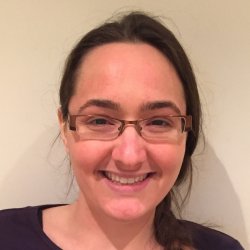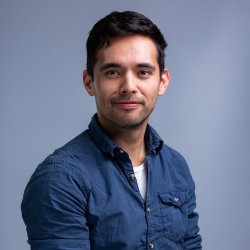PGR IAA Officer Spotlight - Sophie Tudge
Sophie Tudge, a PGR from the Centre for Environment and Sustainability has been helping us capture the outputs and impact of Surrey's EPSRC IAA projects. Let's hear about her experience...
Tell us about yourself, why you applied for this role, and what you expected to gain
I am a second year PhD student researching biodiversity and land use change for agriculture in the Centre for Environment and Sustainability, and before starting my PhD I was working in ecological consultancy.
During the first year of my PhD I had the opportunity to spend time defining my own research plan, which included things like budgeting and developing new research partnerships. I learned the importance of these extra elements of research and in having clear outcomes in mind.
I applied for the role of IAA Officer as it seemed like a great opportunity to learn about successful research projects completed at Surrey and about the process of taking a research idea from initial hypotheses to testing and to the creation of new processes, technologies and products. The skills learnt through the IAA placement will be useful for my future career, whether it be managing projects, applying for grants or measuring the outcomes of my research. Additionally, demonstrating how a project has impacted the wider community is an ever more useful tool that is vital for reflecting on the success of a project. Therefore, I hoped that I would gain some interesting ideas for engagement from the IAA Officer role.
How would you define ‘innovation’, how does it fit within an academic environment, and how is it relevant? Has your definition changed since working in this role?
Innovation is coming up with something new. It is a very broad term that includes thinking of a new way of doing something, designing a new product or service, or sharing a new idea. Innovation is needed for development and for overcoming the inevitable problems that arise during a research project. There are many other ways that innovation fits into an academic environment that I have discovered during my role as IAA Officer, such as building the foundations for new technologies and testing out different prototypes. However, the link between innovation and academia is clearer than this, since research is all about being innovative and finding out new information that can then be used or built on in different ways to progress society.
What do you think are the biggest barriers to innovation for researchers at Surrey, in particular within your School or Faculty, and how do you suggest we address these?
I think the biggest barriers to innovation at Surrey are a lack of awareness about what counts as innovation and how researchers can turn innovative ideas into beneficial outcomes for society.
There are many ways that innovative researchers can be supported at Surrey, for example through IAA funding that can help them progress with commercialisation.
Within the Centre for Environment and Sustainability, I think progress with innovation has probably been slower than in other departments that have clearer links between research and innovation (i.e. the development of a product that can be commercialised). Research like mine, that uses data analysis techniques to understand global issues, can be harder (or just slower) to translate into something commercial such as a product or a spin-out company. However, it is definitely still possible. More awareness-raising about the options and support available from the University could help kick-start ideas about innovation.
How has your experience in the role changed your approach to innovation?
I am now more aware of the ways that research can be innovative and I have a better understanding of the range of innovative projects completed at Surrey. Going forwards, I will try to connect my research with businesses and wider society wherever possible, to help take my ideas to the next level and speed up their application in the real world.
What things have you learned? Was anything unexpected?
During my role as IAA Officer, I have learned a lot about the ways to measure the outcomes and impacts of research projects. For example, the number of publications is one of many different outcomes. Others include whether any new partnerships were made between the university and external organisations, the increase in technology readiness level of a product, changes to policy that may have arisen or the number of academics trained during a project. There are a surprising range of indicators, and being more knowledgeable about these could help researchers to better explain what their research projects achieved. This is a very useful skill for engaging others in research, either verbally (e.g. at presentations, interviews or outreach events), or in written work (e.g. press articles, blogs, applications).
What would you say to a prospective ECR considering applying to work with the technology transfer team?
The insights and skills you gain from working with the technology transfer team will be transferrable to academia or business, so will be useful whichever route you follow with your career. If you are interested in learning more about the behind-the-scenes processes involved in project funding and evaluation, or about the actual process of commercialisation, then definitely consider applying.
My time as an IAA Officer has enabled me to generate some extra money alongside my PhD, which has been hugely beneficial, and the role is very flexible which means I haven’t encountered any problems with time management. The team are knowledgeable, approachable and receptive, and more than happy for you to take the initiative, or be innovative, in your approach to your work.
Question | 😱 | 😢 | 😐 | 🤓 | 🔥 |
|---|---|---|---|---|---|
Before your IAA Officer role, what was your practical understanding and application of impact, knowledge exchange and commercialisation activities? |
|
| ❌ |
| |
Before your IAA Officer role, what was your understanding of IP? | ❌ |
|
|
|
|
Before your IAA Officer role, what was your awareness for the relevance of innovation to the academic career? |
|
|
| ❌ |
|
| Overall, how do you feel about Innovation now? | ✅ |

